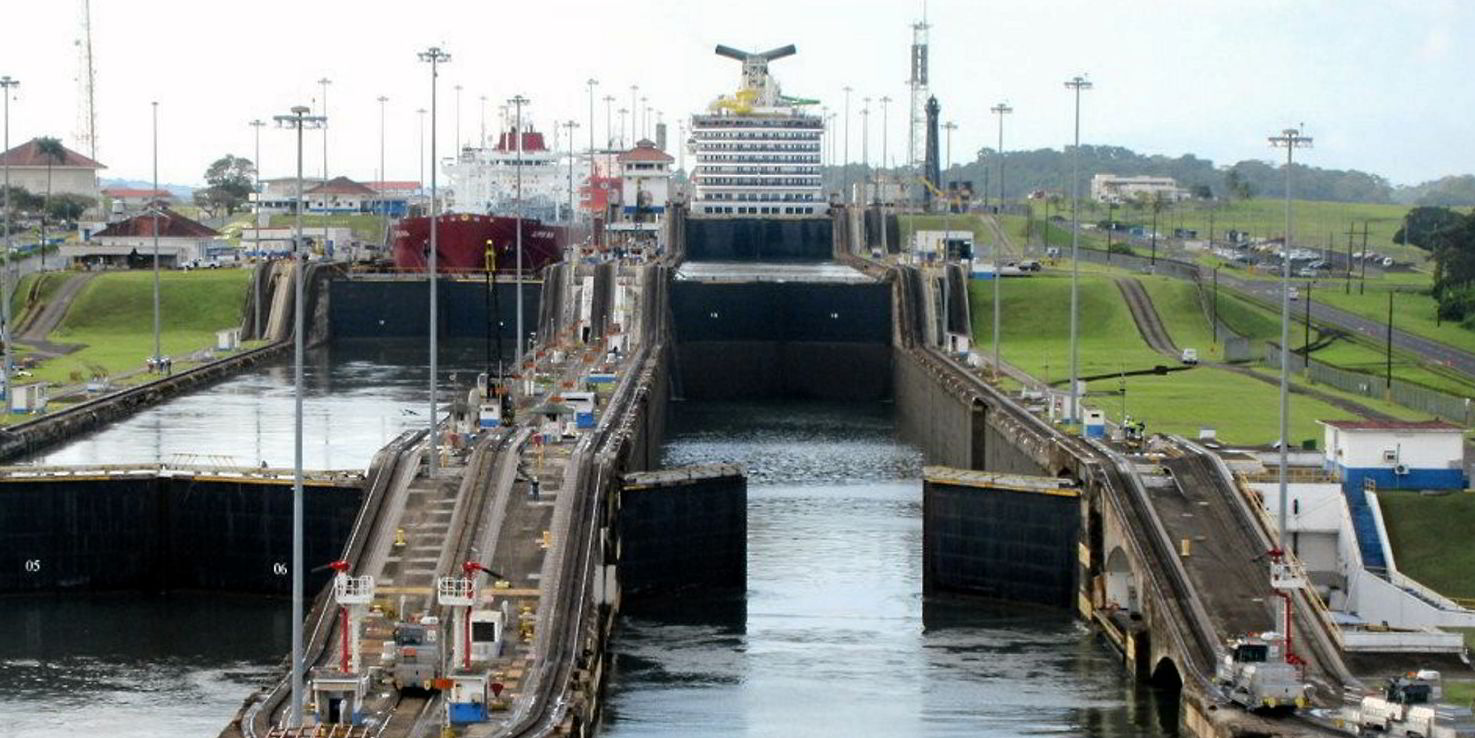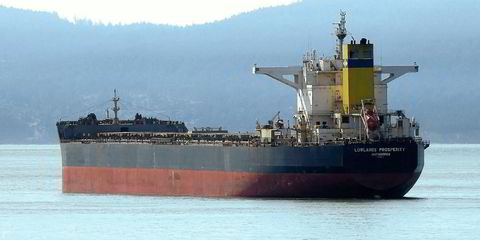Disruption to global trade by war and climate change has led to a surge in shipping emissions as vessels travel further and faster, according to the United Nations’ trade body.
Attacks on Red Sea shipping, slot restrictions in the Panama Canal and conflict in Ukraine have all contributed to changes in trade routes and longer voyages, said the UN Conference on Trade & Development (Unctad).
It estimates that weekly transits through the Suez Canal were down 42% over the past two months and transits through the Panama Canal were down more than one-third on year because of falling water levels.
“The cumulative effect of these disruptions translates into extended cargo travel distances, escalating trade costs and a surge in greenhouse gas emissions from shipping having to travel greater distances and at greater speed,” it said.
“The price per day of shipping and insurance premiums have surged, compounding the overall cost of transit.”
Unctad said average container shipping spot rates from Shanghai to Europe had more than tripled compared with early December. However, the heightened rates were overall still half of the peak during the Covid crisis.
“Additionally, ships are compelled to travel faster to compensate for detours, burning more fuel per mile and emitting more CO2, further exacerbating environmental concerns,” it said.
The problems highlighted the vulnerability of trade to geopolitical tensions and climate-related challenges, it said.
Read more
- Tanker carrying Russian cargo and Trafigura ship avoid Gulf of Aden strike
- Record in sight: Red Sea crisis propels LR2 tanker rates into territory not seen since Opec+ price war
- ‘US can drop all the bombs in the world’: Egypt key to unlocking Red Sea shipping crisis
- Tanker major KOTC sticks to Red Sea route, for now
- US and UK sanction high-ranking Houthi officials for attacks on shipping





